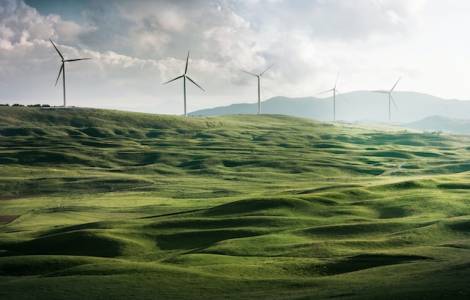
Seoul (Agenzia Fides) - Faced with the global climate crisis, humanity faces the great task of so-called "carbon neutrality", defined in climatology as "the state of equilibrium between carbon dioxide (CO2) emissions of anthropic origin and its removal from the atmosphere", that is. the condition of "zero net emissions" of CO2. The issue does not leave the Catholic community in South Korea indifferent, which has taken Pope Francis' encyclical Laudato Sì seriously. For this reason, the Commission for the Environment and Ecology of the Bishops' Conference of South Korea is organizing a study day entitled "Carbon neutrality of the Korean Catholic Church" on June 5, organized by the Catholic diocese of Incheon.
During the day, all dioceses and parishes will be shown a path to reach "zero net emissions" will be brought to the attention of all dioceses and parishes, suggesting ways and practices to start concretely. The main speech will be given by Jesuit Father Cho Hyeon-cheol SJ, a professor at Sogang University, on "Church's carbon neutrality for ecological repentance". Faced with the omnipotence of science and technology - explains the Jesuit - considering climate change as the result of human greed and a wrong lifestyle - as Laudato Sì affirms - a kind of "ecological repentance" is necessary, from which to start over to rethink and move towards a society that is more just and respectful of Creation. Father Yang Gi-seok, Secretary General of the Commission for the Environment in the diocese of Suwon, will illustrate the "good practices of carbon neutrality" already adopted in dioceses and parishes, in line with the indications of Laudato Sì. His analysis will highlight the results and limits of this commitment, trying to trace a necessary and shared path.
In this sense, special emphasis will be placed, at the proposal of Professor Kim Dong-joo, a specialist in renewable energy, on wind energy, which is attracting worldwide attention. Local communities can in fact achieve carbon neutrality through the production of wind energy: the aim is therefore to examine the possibility of an energy conversion movement involving the Catholic faithful, but then spreading to all local residents, an experiment that is intended to be launched in the maritime city of Incheon.
Like Japan, South Korea - Asia's fourth largest economy - announced as early as 2020 its intention to become "carbon neutral" as a nation by 2050. Coal currently accounts for 40% of South Korea's energy, and renewable energies reach a share of less than 6%. South Korea's per capita carbon dioxide emissions remain among the highest in Asia.
In 2020, the Korean government launched an investment plan of about 7.1 billion dollars in "Green new deal" projects, which include building renovation, urban living practices, recycling, incentives for electric cars and the installation of charging stations for electric and hydrogen cars, as well as the construction of renewable energy plants. (PA) (Agenzia Fides, 1/6/2023)